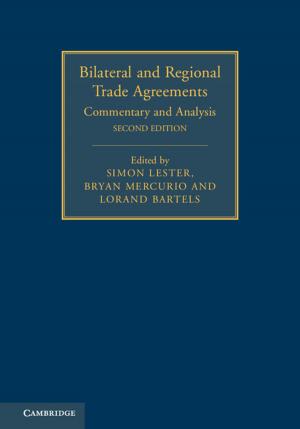A History of Macroeconomics from Keynes to Lucas and Beyond
Business & Finance, Economics, Macroeconomics, Economic History| Author: | Michel De Vroey | ISBN: | 9781316417980 |
| Publisher: | Cambridge University Press | Publication: | January 7, 2016 |
| Imprint: | Cambridge University Press | Language: | English |
| Author: | Michel De Vroey |
| ISBN: | 9781316417980 |
| Publisher: | Cambridge University Press |
| Publication: | January 7, 2016 |
| Imprint: | Cambridge University Press |
| Language: | English |
This book retraces the history of macroeconomics from Keynes's General Theory to the present. Central to it is the contrast between a Keynesian era and a Lucasian - or dynamic stochastic general equilibrium (DSGE) - era, each ruled by distinct methodological standards. In the Keynesian era, the book studies the following theories: Keynesian macroeconomics, monetarism, disequilibrium macroeconomics (Patinkin, Leijongufvud and Clower), non-Walrasian equilibrium models, and first-generation new Keynesian models. Three stages are identified in the DSGE era: new classical macroeconomics (Lucas), RBC modelling, and second-generation new Keynesian modeling. The book also examines a few selected works aimed at presenting alternatives to Lucasian macroeconomics. While not eschewing analytical content, Michel De Vroey focuses on substantive assessments, and the models studied are presented in a pedagogical and vivid yet critical way.
This book retraces the history of macroeconomics from Keynes's General Theory to the present. Central to it is the contrast between a Keynesian era and a Lucasian - or dynamic stochastic general equilibrium (DSGE) - era, each ruled by distinct methodological standards. In the Keynesian era, the book studies the following theories: Keynesian macroeconomics, monetarism, disequilibrium macroeconomics (Patinkin, Leijongufvud and Clower), non-Walrasian equilibrium models, and first-generation new Keynesian models. Three stages are identified in the DSGE era: new classical macroeconomics (Lucas), RBC modelling, and second-generation new Keynesian modeling. The book also examines a few selected works aimed at presenting alternatives to Lucasian macroeconomics. While not eschewing analytical content, Michel De Vroey focuses on substantive assessments, and the models studied are presented in a pedagogical and vivid yet critical way.















